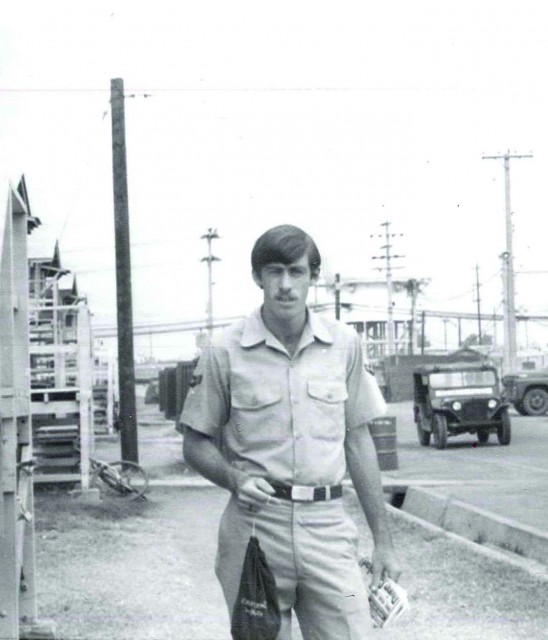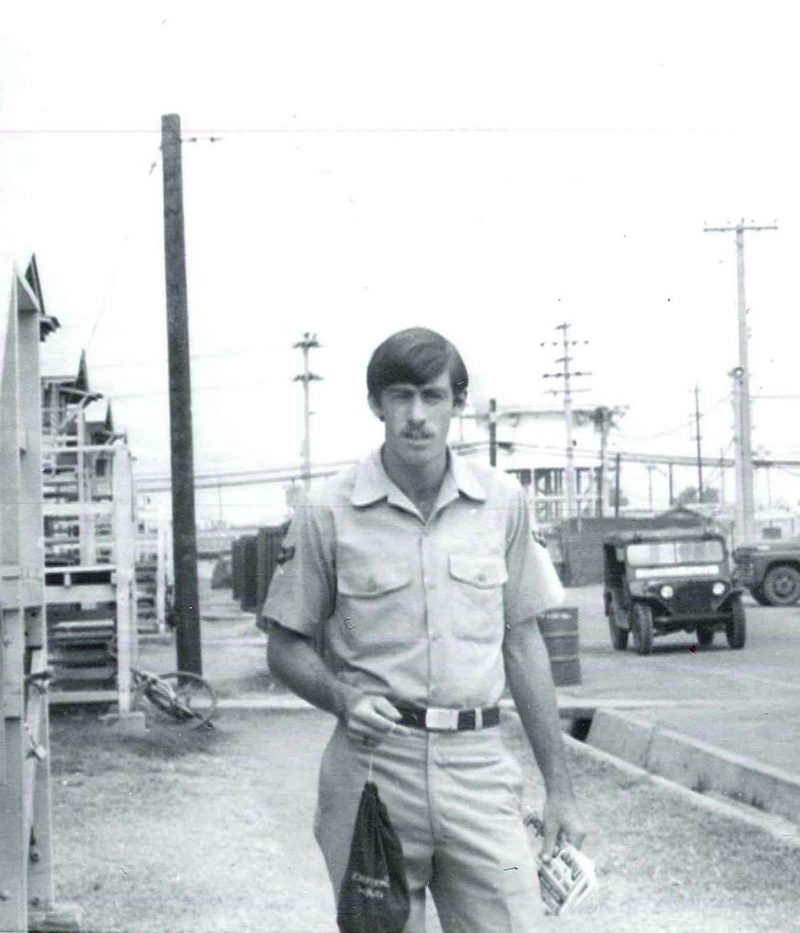This is an article on a veteran that received valuable medical training in the Navy, which led to her becoming a nurse in the civilian sector:
Air Force veteran describes service during the Vietnam War
By Jeremy P. Amick
The military draft compelled many a young person into service during the Vietnam War—not just by virtue of mandate, but having encouraged voluntary enlistment in hopes of giving one a greater level of choice over their career path.
Such was the case for Jefferson City, Mo., veteran Robert Ruble, whose low draft number, he believed, would likley to land him in the heart of the Vietnam War.
A 1969 graduate of Arcadia (Mo.) High School, Ruble said that while attending Mineral Area College the following year, he decided to forego school to begin work—a decision that would cost him his deferral.
“You could kind of tell, based upon your draft number, whether you were likely to be drafted,” said Ruble. “Back then, most of the guys who got drafted went to infantry and had to carry a rifle … and that’s not something I was interested in doing,” he grinned.
Certain that a military stint was fast approaching, Ruble turned his attention toward the Air Force, clinging to the belief that he would not be sent to a combat zone since “only the pilots were the ones likely to be deployed,” he said.
But, as Ruble noted, fate dabbled in irony and he soon found himself in a combat zone … and carrying a rifle.
Enlisting in the Air Force in February 1971, the recruit completed his basic training, and remained at Lackland Air Force Base (AFB), Texas, to attend advanced training as a law enforcement specialist.
He was then given the opportunity to complete a “dream sheet” to identify additional training and desired duty locations, which he later discovered was an exercise in futility.

“The choice of locations I made was for places like California and Arizona—all warm climates,” he said. “Instead, they decided to send me to Loring AFB in Maine.”
Two months into his new assignment, Ruble received orders to deploy to Vietnam. He returned to Texas for a brief combat training school and by January 1972, was in Tan Son Nhut Air Base, Vietnam, attached to the 377th Security Police Squadron.
The first three months of his duty, he recalls, consisted of “carrying a rifle” and performing routine law enforcement functions such as perimeter security; duty that provided the young airman with a certain level of excitement.
“At night it was like the base just shut down—no planes coming in and none leaving,” Ruble said. “Then they would drop flares around the base and we would watch to see if any Vietcong were trying to breach the perimeter.”
Three months into his assignment, he was reassigned on the base as a Department of Defense customs inspector, performing a task similar to that of a TSA agent.
Any servicemembers entering or leaving Vietnam would process through the base, Ruble said. He and his fellow inspectors would search each individual and their baggage for any type of prohibited items including weapons, drugs and “war trophies.”
As Ruble described, war photographs were the most common contraband confiscated by the agents, but some U.S. personnel were able to gain permission to bring certain items back to the states.
“You could get a certificate from the ATF prior to returning home that allowed you to bring things back from Vietnam,” Ruble said. “But if you didn’t have this permission prior to processing through, it had to be confiscated.”
Ruble returned to the United States in Februray 1973 and attended training to become a graphic illustrator, spending the next three years in stateside duty locations in Alabama and South Carolina.
In May 1977, shortly after his reenlistment, the airman was granted a hardship discharge so that he could return to Missouri after his father had suffered a heart attack and stroke.
The next year he earned his bachelor’s degree in graphic arts from Southern Illinois University, a process made quicker because of college credit he earned in the service.
The veteran spent the next 15 years working for a community action agency and in 1993 moved to Jefferson City, Mo., to begin work for the Missouri Department of Economic Development, where he is currently employed.
Although he humbly admits he was never the bold and aggressive type in school while growing up, Ruble affirms that the military helped bestow valuable qualities that have been a boon to him throughout his career.
“I really didn’t have very much self-confidence when I was younger; I always seemed to be the undersized person due to the asthma I had as a kid,” Ruble explained.
“But the military helped me identify certain qualities that I never knew I possesed and developed me in areas that allowed me to use and demonstrate leaderhip abilities. This, in the end,” he added, “instilled in me a greater level of confidence.”
Jeremy P. Ämick writes on behalf of the Silver Star Families of America.
Jeremy P. Ämick
Public Affairs Officer
Silver Star Families of America
www.silverstarfamilies.org
Cell: (573) 230-7456
